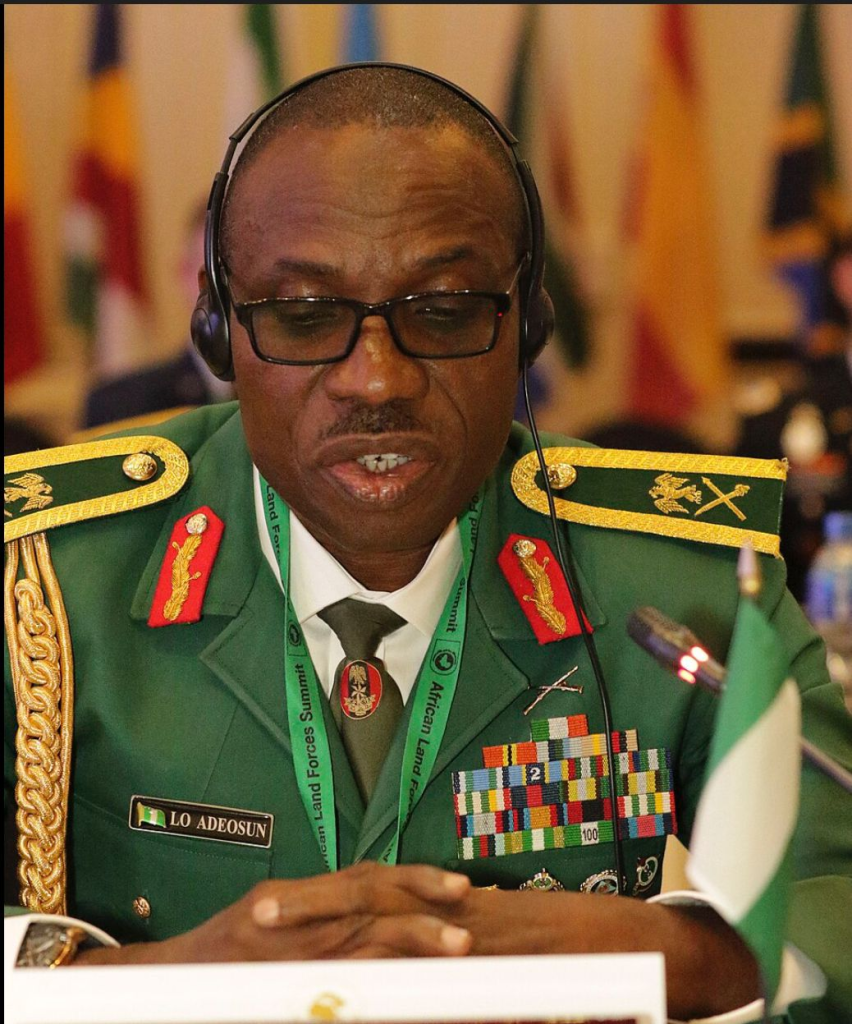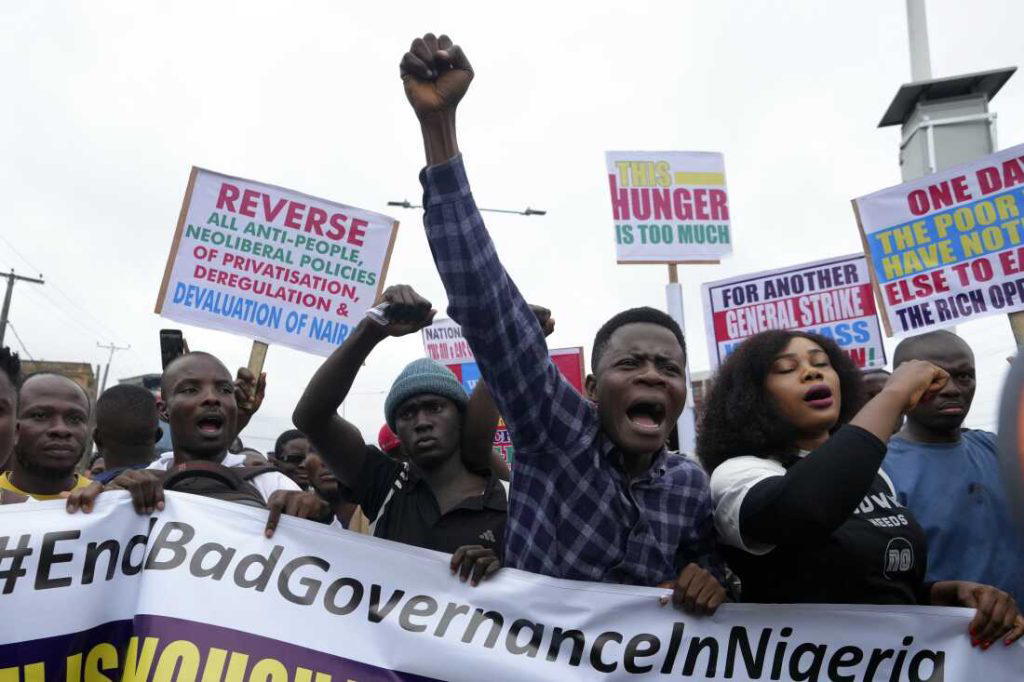
Insecurity in Middle Belt is a mirror of Nigeria’s larger governance crisis — Ex-Military General,
By Efe Onodjae
Former Chief of Policy and Plans, Nigerian Army, Lieutenant General Lamidi Adeosun (retd.), has raised the alarm over the escalating insecurity ravaging Nigeria’s Middle Belt, blaming it on a complex interplay of ethno-religious tensions, elite manipulation, land disputes, and weak governance structures.
The retired general stated this while delivering the first Distinguished Lecture Series organised by the Centre for Peace and Security Studies at Lagos State University, titled “Strategies for Tackling Insecurity in the Middle Belt: An Insider’s Perspective.”
Adeosun called for an urgent recalibration of Nigeria’s national security strategy, warning that without context-sensitive responses rooted in local realities, the country risks a breakdown of state authority and regional stability.
He stressed that insecurity in the region comprising Benue, Plateau, Nasarawa, Kogi, Taraba, Niger, and parts of Kaduna and the FCT, had become deeply entrenched due to decades of structural neglect and the weaponisation of identity politics.
According to Adeosun, insecurity in the Middle Belt is not spontaneous but a product of historical grievances, elite exploitation, and climate-induced resource conflicts. He listed five main drivers of the crisis: ethno-religious tensions, land disputes, elite manipulation, criminality, and weak governance.
He noted: “The Middle Belt has become a theatre of overlapping violence where identity, land, and politics intersect dangerously. The ‘indigene’ versus ‘settler’ dichotomy, religious bigotry, and elite-backed militias have combined to turn communal grievances into bloodbaths.”
The former military chief cited Benue, Plateau, and Southern Kaduna as flashpoints, noting that the herder-farmer conflict in these areas had morphed into organised violence, often reinforced by criminal networks and the failure of government institutions.
Adeosun did not mince words on the role of political elites in fuelling the crisis. He accused several of them of arming youths during elections, only to abandon them post-polls , a trend he said has turned local thugs into militia commanders and warlords.
He referenced the case of Terwase Akwaza, alias “Gana,” in Benue State, who transitioned from vigilante leader to warlord, with alleged ties to political actors.
“The rise and fall of ‘Gana’ typify how the manipulation of non-state actors by political elites can boomerang and become a national security nightmare,” he warned.
The retired general lamented the growing sophistication of armed groups in the region, pointing to rampant kidnappings, cattle rustling, and arms trafficking, especially along the Abuja-Kaduna axis.
He decried the state’s failure to rein in these actors, noting that weak policing, corruption, and the proliferation of small arms had rendered many communities vulnerable.
“Criminality in the Middle Belt is no longer incidental; it is systemic, profitable, and politically protected,” he stated.
Adeosun outlined a multi-dimensional strategy anchored on community-based security, good governance, livestock modernization, land reform, and the demilitarisation of youth.
He advocated for the strengthening of indigenous security networks including traditional rulers, faith-based groups, hunters, and vigilantes to complement formal security agencies.
“Local communities understand their terrain and threats better. Their involvement is critical in building intelligence-led responses,” he stated.
On governance, he urged the institutionalisation of inclusive and accountable systems, warning that marginalisation breeds rebellion.
“Governance must be participatory. No community should feel excluded or silenced in a democracy,” Adeosun said.
To curb recurring herder-farmer clashes, Adeosun called for the modernisation of livestock farming through ranching, supported by clear legal frameworks, traceability systems, and training for herders.
He also recommended equitable land reforms that recognise both statutory and customary ownership, as well as the demarcation of agricultural and grazing zones to prevent violent overlaps.
“Land is not just an economic asset in the Middle Belt. It is identity, survival, and history. Any reform must be justice-driven and locally owned,” he said.
While stressing that the Middle Belt’s instability poses a grave threat to national unity and economic stability, Adeosun warned that Nigeria risks collapse if proactive steps are not taken.
He called on the Federal Government, civil society, traditional rulers, and international partners to adopt locally grounded solutions rather than one-size-fits-all security frameworks.
“The insecurity in the Middle Belt is a mirror of Nigeria’s larger governance crisis. Fix it, and we move closer to national stability. Ignore it, and we risk becoming a country at perpetual war with itself,” he concluded.
The post Insecurity in Middle Belt is a mirror of Nigeria’s larger governance crisis — Ex-Military General appeared first on Vanguard News.
,
By Efe Onodjae Former Chief of Policy and Plans, Nigerian Army, Lieutenant General Lamidi Adeosun (retd.), has raised the alarm over the escalating insecurity ravaging Nigeria’s Middle Belt, blaming it on a complex interplay of ethno-religious tensions, elite manipulation, land disputes, and weak governance structures. The retired general stated this while delivering the first Distinguished […]
The post Insecurity in Middle Belt is a mirror of Nigeria’s larger governance crisis — Ex-Military General appeared first on Vanguard News.
, , Idowu Bankole, {authorlink},, , Vanguard News, August 1, 2025, 2:53 am










